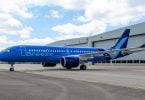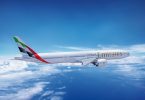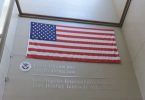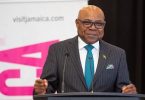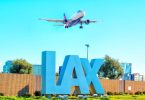The Federal Aviation Administration’s decision to revoke the licenses of the pilots of the Northwest jetliner that lost radio contact with controllers last week threatens to disrupt voluntary safety reporting programs used by pilots, according to industry officials and aviation-safety experts.
Immediately after FAA regulators on Tuesday revoked the licenses of both pilots aboard Northwest Flight 188, leaders of the largest U.S. pilot union began complaining and planning a response, these officials said.
Officials of the Air Line Pilots Association decided on Wednesday that the government’s enforcement move violated the spirit, and probably the letter, of voluntary incident reporting and data-sharing arrangements in place at Northwest parent Delta Air Lines Inc. and other airlines.
FAA officials have rejected such claims, asserting that voluntary disclosure programs were never meant to cover intentional violations such as those committed by the Northwest cockpit crew.
Designed to foster pilot-airline cooperation on safety initiatives, voluntary incident reporting programs are widely regarded as powerful tools to help airlines, pilots and government regulators, identify and deal with budding safety hazards.
Each carrier has set up its own detailed procedures allowing pilots to confidentially disclose all types of safety lapses and mistakes, without fear of punishment from airline management or government enforcement officials.
A special review committee — usually consisting of pilots, management and FAA representatives — is authorized to analyze the data, interview the pilots and then determine if the incident qualifies as a legitimate voluntary disclosure event.
When it comes to Flight 188, the union contends the mandatory committee review procedure was never followed and the FAA jumped the gun by meting out punishment to pilots who voluntarily and in good faith answered questions from investigators. The incident review committee is scheduled to meet Thursday, according to two people familiar with the matter.
The pilots have told investigators they became distracted, engaged in extensive conversation, opened up laptops in the cockpit and failed to monitor their aircraft’s position or radio transmissions from controllers while cruising at 37,000 feet.
The union, which represents more than 50,000 pilots in the U.S. and Canada, ranging from those flying jumbo jets for large international carriers to fledgling pilots flying turboprops for commuter airlines, on Thursday is expected to send letters to the Federal Aviation Administration complaining that the punishment in the Northwest incident was premature. Union officials adopted a resolution calling on John Prater, the group’s president, “to use all available means” to ensure that the FAA understands the extent of their concern and that FAA officials take steps to “recommit to protect the integrity” of existing voluntary safety programs.
A union spokeswoman couldn’t immediately be reached for comment. One union faction even contemplated temporarily pulling out of such programs as a symbolic gesture of protest. If the union ratchets back participation in these programs, “it would be a major loss for the FAA” and could slow the global drive for safer skies, according to John Goglia, a former member of the National Transportation Board, which is leading the investigation into the Northwest incident. Separately, a House transportation subcommittee has begun looking into the matter.
Senior FAA officials for years have credited these voluntary programs with helping to lower accident rates in the U.S. and elsewhere. But the programs have a rocky past, with different airlines opting out of them at various times. At one point last year, Delta, US Airways and AMR Corp.’s American Airlines were refusing to participate in voluntary incident reporting.
Since then, all three carriers have reinstated them. Until now, the recent merger of Northwest and Delta was seen boosting voluntary reporting arrangements because the combined company planned to set up an ambitious data-sharing program. The union’s leadership contends the FAA’s decision to revoke the pilots’ licenses was driven more by politics than safety considerations.
FAA critics, for example, point out that the agency hasn’t taken any public action against the pilots of a Delta Boeing 767 widebody jet that landed on a taxiway in Atlanta last week. The incident could have resulted in a crash if other aircraft had been moving down or crossing the taxiway.












